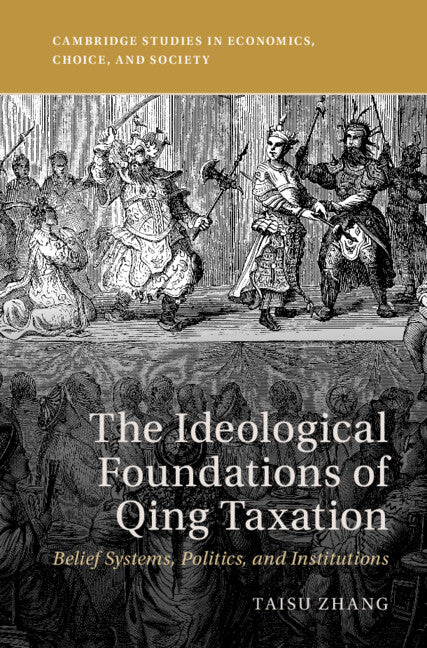Freshly Printed - allow 8 days lead
Couldn't load pickup availability
The Ideological Foundations of Qing Taxation
Belief Systems, Politics, and Institutions
Surveys the fiscal history of China's last imperial dynasty and explains why its ability to tax was unusually weak.
Taisu Zhang (Author)
9781316518687, Cambridge University Press
Hardback, published 9 February 2023
250 pages
23.5 x 15.8 x 3.1 cm, 0.8 kg
'Why did the Qing empire consistently under-tax its agricultural base? This book invites one to the backroom of emperors and statesmen as they debated fiscal policy, and performs a masterful dissection of the long-term ideological forces at work. A gripping read.' He Bian, Associate Professor of History, Princeton University
How states develop the capacity to tax is a question of fundamental importance to political science, legal theory, economics, sociology, and history. Increasingly, scholars believe that China's relative economic decline in the 18th and 19th centuries was related to its weak fiscal institutions and limited revenue. This book argues that this fiscal weakness was fundamentally ideological in nature. Belief systems created through a confluence of traditional political ethics and the trauma of dynastic change imposed unusually deep and powerful constraints on fiscal policymaking and institutions throughout the final 250 years of China's imperial history. Through the Qing example, this book combs through several interaction dynamics between state institutions and ideologies. The latter shapes the former, but the former can also significantly reinforce the political durability of the latter. In addition to its historical analysis of ideological politics, this book makes a major contribution to the longstanding debate on Sino-European divergence.
1. A short history of qing taxation
2. The uses and limitations of rationalist explanations
3. Pre-qing fiscal regimes
4. The early qing paradigm shift
5. Mid-qing entrenchment
6. Late qing reforms
7. Theoretical implications.
Subject Areas: Economic history [KCZ], Macroeconomics [KCB], Economics [KC], Economics, finance, business & management [K], Political science & theory [JPA], Politics & government [JP], Sociology [JHB]


